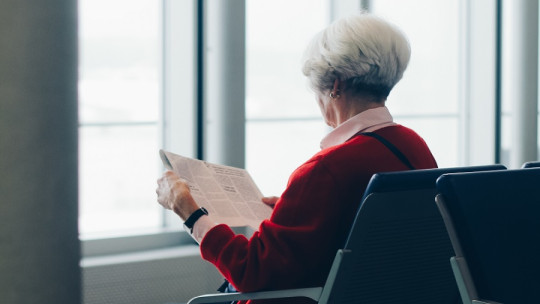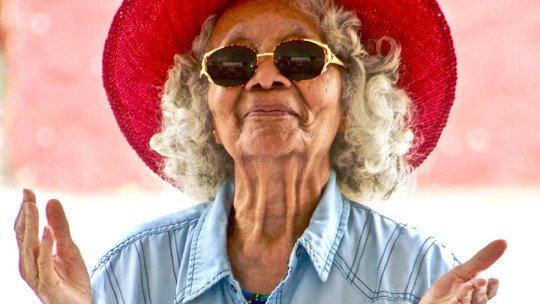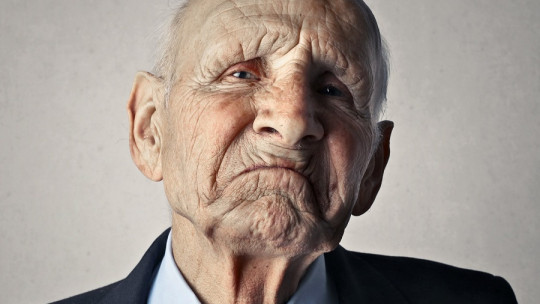
Most of the speeches of older adults begin with “when I was your age…”. And behind that phrase, in a cascade, come the memories of a life full of anecdotes. Between memories the imperative will appear drawn that youth must be made the most of and then have stories to tell, something like living the fullness of life intensely. How nice it sounds.
Older people know well that stories are rarely written alone. Friends appear in their memories, some who are still with them, others who are no longer there. That’s when they preach the maxim that one of the pillars of being young is sharing that stage. You are young with others. But, What if instead of identifying with such a rule, more and more young people feel overwhelmed by loneliness?
The shame of feeling alone during youth
From meeting friends somewhere to sharing a passing chat with co-workers on break, it seems that the ordinary activities of youth cannot escape the company of another. However, despite being in constant contact with others, the ghost of loneliness increasingly torments young people. For them, that feeling is not only painful in itself, but also A feeling of shame is added to them for experiencing it at a stage that should be the complete opposite
The fear of misunderstanding from peers could generate this age “gap”; and, consequently, young people who feel lonely may have difficulty asking a friend, family member or therapist for help, further isolating themselves. There are certain factors that magnify this problem. Let’s look at them below.
The false company of virtual proximity
The tendency of young people to feel increasingly alone cannot be addressed without taking into consideration that today’s youth is not the same as the youth of before. Nowadays andWe are contained within a network of connections twenty-four hours a day due to an element that has become indispensable to us: the smartphone Smart devices that fit inside our pockets put us “inside,” that is, they invite us to always be together, although without locking ourselves in a shared physical place. Observe the many WhatsApp groups of which we are part, in which our cell phone is always available to receive messages, at any time, announcing with blue accents what at another time a glance would say.
This contact that cell phones offer does not make our ties stronger, quite the opposite. The co-presence of being face to face in front of another person is eradicated by what Bauman calls virtual proximity: we know about the other according to what they have uploaded to their latest story on social networks. We believe we are with him from a distance and we even have a certain amount of imagination that revolves around what the other person is doing, or worse still, around how he or she feels. The other side of the coin? Virtual distance. The relationships and connections we establish with others are superficial, the messages are short and, to calm anxieties, we are lucky that if they are voice messages they can be accelerated. Brief contact is rewarded. With this panorama, it is not strange to think that young people feel more alone than thirty years ago.
Social networks can give young people the false feeling that there is someone next to them all the time, and maybe yes, there is. But the contact they offer is superfluous compared to the support that a friend or family member can provide—who, instead of inferring how you feel based on your latest publication, decide to accompany you in a more empathetic and attentive way. Loneliness can be silent, and networks can cover it up.
Of course, something no less important is that it is thanks to social networks that today’s young people build their own identity. In them they can access their own voice by generating their own content. They also receive and produce common and mediated knowledge, configuring a generational identity capable of strengthening ties with others and reducing the feeling of being alone.
In the recent pandemic, social networks have been essential as emotional support when many of our loved ones were far away; although it is also true that, as a result, some people have lost the social life they used to lead. Perhaps it is not about throwing them away, but rather making conscious use of them.
Consumer society, youth employment and loneliness
Besides, The fact of living in a consumer society has its impact on the problem of youth loneliness Activities that are socially perceived as belonging to young people are affected by it. For example, going out with friends brings with it the need to consume in the place where they meet. This produces a lot of frustration in young people when the available job offers are few and tend to be poorly paid, tempting the possibility of escaping these social events. Furthermore, they tend to require previous experience or extensive training that they do not yet have.
This explains why the youth unemployment rate is close to 15%, which means that the new generation of young people is exempt from the capacity for savings and independence that characterized the mobilizing youth of the 60s. time they spend at their parents’ house: in some Latin American countries, such as Mexico and Argentina, the average emancipation is at age 28. In Peru—just like in Spain—it is at 29. The moods that young people experience when faced with their economic situation tend to be one of helplessness or sadness, which leads to a passive and unhealthy lifestyle, and In short, to reinforce the vicious circle of social isolation.
Name the silence
For these reasons, Loneliness is not a phenomenon that only affects older adults, but more and more young people are experiencing it in silence despite the fact that noise is expected on their part. Bringing their situation to light could be useful both to make their situation visible and also to review the lack of prevention of this problem in the institutions in which they participate.
In this sense, group therapy has proven to be an effective tool to help young people suffering from unwanted loneliness. The fact of getting involved in a collective activity, having a context of support and honesty in which to show your vulnerable side and feel understood, is a very good way to understand and accept yourself, going beyond individualism. If you are interested in this type of psychological intervention, contact me: I offer individual psychotherapy and group therapy sessions.








